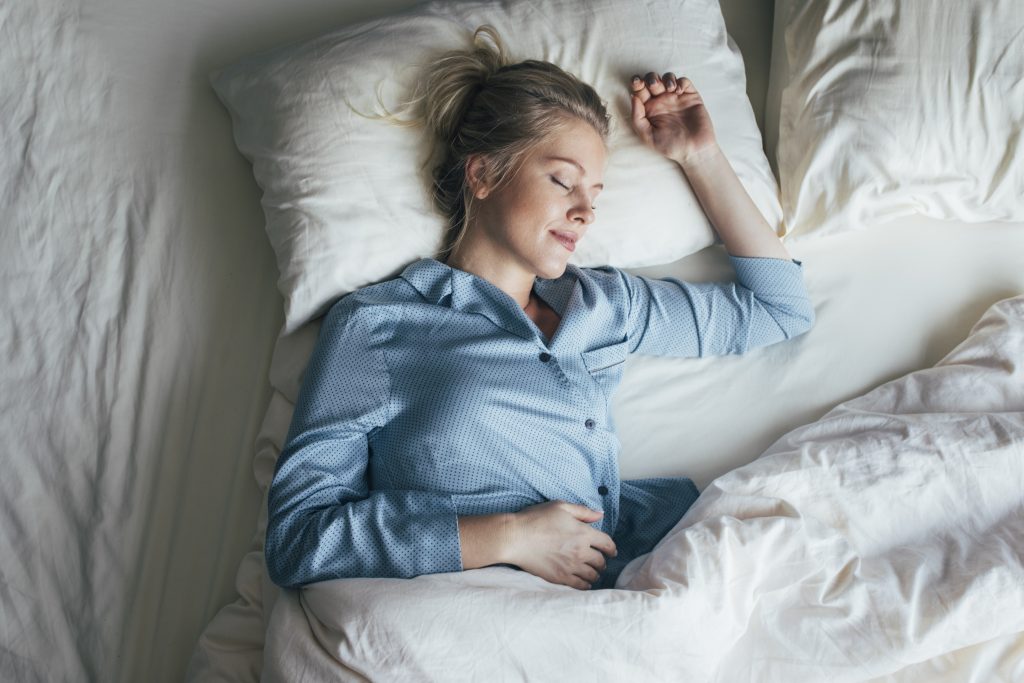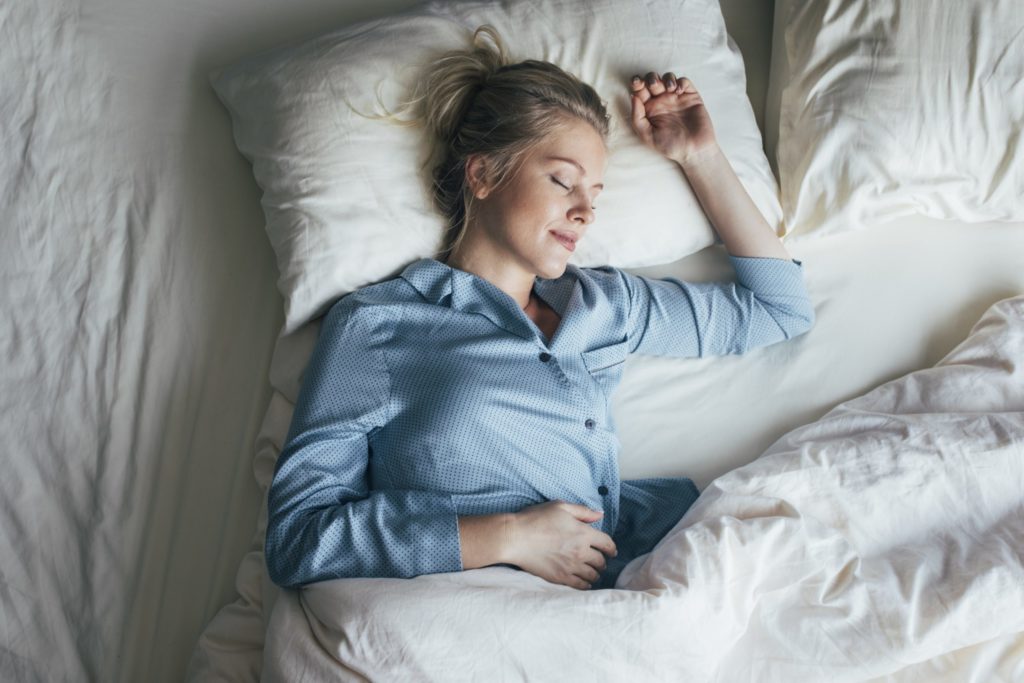
Sleep & Addiction Recovery
It is common for people in recovery from addiction to have problems sleeping. People going through an alcohol or drug detox especially tend to struggle with sleep as their body goes through withdrawal. These sleep disturbances can last weeks or even months and sometimes require separate attention. Common sleep disturbances in recovery include:
- Problems falling asleep
- Trouble staying asleep
- Lower sleep quality
- Sleep apnea
- Atypical sleep stages
- Relapse dreams1,2,3
Some reports even suggest that insomnia is five times more prevalent for people in early recovery than it is for the general population.4 Although sometimes elusive, getting good sleep in recovery is important to help your body and mind heal from the damage done by substance use. Without it, the risk of relapse greatly increases.3
How to Sleep Better in Recovery
Because sleep is so vital during this time, it is important to understand how to get better sleep in addiction recovery if you are struggling. Our Texas drug rehab is sharing some sleeping tips for recovery that could help you feel well-rested once more and even boost your recovery efforts.
Keep a Consistent Sleep Schedule
One of the best ways to improve sleep in recovery is to follow a consistent sleep schedule. Not only should you allow for eight hours of sleep a night, but also you should go to bed and wake up around the same time each day. This regular sleep routine can reset your circadian rhythm if needed and help your body understand when it is time for bed. Because residential addiction treatment follows a strict schedule, this type of program can make following your sleep schedule easier. You should also avoid napping and caffeine because both can throw off your routine.
Wind Down Before Bed
Especially if you are having trouble falling asleep, you may need more time to wind down before going to bed. Develop a relaxing pre-bedtime routine so that you signal to your body that it is time to go to sleep. Meditation, light stretching, and relaxation techniques can all be helpful. Avoid scrolling through your phone before bed as use can interfere with your normal sleep cycle and natural hormones related to sleep.5
Keep the Bed for Sleeping
Another helpful tip for better sleep in recovery is to only use your bed for sleeping. Watching shows or doing work in bed can create an association in your mind between the bed and activities other than sleep. This connection can make it harder for your mind to relax and for you to fall asleep.
Create a Relaxing Sleep Environment
It is much harder to fall asleep with loud noises and bright lights around you. To enhance your sleep in recovery, focus on creating a peaceful environment that is conducive to a good night’s rest. Block out unnecessary light and set the room to a comfortable sleeping temperature. You can also use a white noise machine or play a relaxing sleep track to drown out other noises.
Exercise Regularly
One way to improve sleep quality in recovery may also be to exercise regularly. Not only is routine exercise good for your overall health, but also exercising has been found to improve sleep quality.6 Just avoid exercising too late in the evening as it may take longer for your body to wind down and be ready for bed.
Track Your Sleep
If you consistently follow these sleeping tips in recovery without any success, it may be a sign of another problem. Keep a log of any sleep disturbances or problems. This information can help a doctor diagnose and treat a sleep condition more easily. Unfortunately no matter what you do, improving sleep in recovery may take time. Generally the longer you are in recovery, the fewer problems you’ll have sleeping. Be patient, but see a doctor if problems persist or do not improve. At Texas Recovery Center, we understand that recovery from addiction is a long and difficult journey, but we want to be here for you every step of the way. Contact us today if you need more help or support on your recovery journey.












